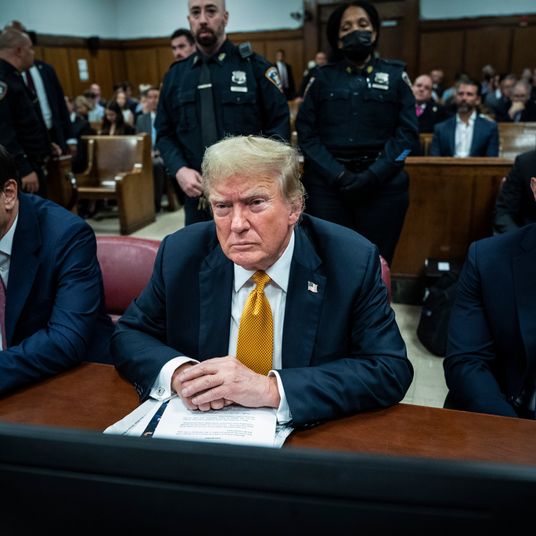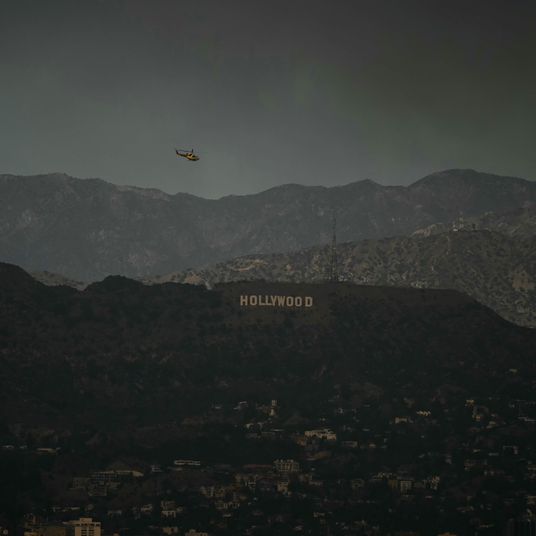The next few weeks could prove to be a crucial time for the national gay-rights movement, which invested heavily in New York to try to pass same-sex marriage but was stymied in the chaos over the summer. Unfortunately for the activists, the battle has become a game of chicken or hot potato, depending on whom you talk to. On one level, not a lot has changed from the situation in the summer. Again, Governor Paterson, grasping for political traction, has brought the issue to a head, promising to order lawmakers back to Albany next month and to force them to take up the marriage bill. Malcolm Smith is no longer running the Senate. But John Sampson, a Brooklyn lawyer who supplanted Smith as Democratic leader, is stirring similar doubts about his willingness to hammer holdouts into yes votes. (Like Smith, Sampson wasn’t a supporter of gay marriage before assuming power.) And still, not a single Republican has openly endorsed gay marriage.
The trouble for supporters is that the ground that has shifted has raised the odds against them. Sampson is already struggling to unite Democrats behind an emergency plan to rescue New York from a swelling midyear deficit. The possible expulsion or resignation of Queens senator Hiram Monserrate, who was convicted of a misdemeanor assault against his girlfriend, could remove another yes vote. And the conservative revolt against Republican Dede Scozzafava, who voted for gay marriage in the Assembly, has shaken the nerves of moderate Senate Republicans.
Privately, Sampson has told Republicans he has 25 or 26 votes (out of 32 Democrats), leaving him six or seven GOP votes short of passage. Sources say Republicans could deliver perhaps three or four, but only if Sampson guarantees at least 29 or 30 on his end. “If vulnerable Democrats are allowed off this vote, it’s likely that Republicans will consider this a political issue rather than a vote of conscience. And then all bets are off,” says a Republican source.
Democratic opponents, like Queens senator Shirley Huntley, aren’t giving marriage advocates a lot of optimism. “I haven’t been thinking about it lately,” says Huntley, who says neither Sampson nor the bill’s sponsor, Tom Duane, have lobbied her. While gay-rights leaders are demanding a vote by year’s end, win or lose, Sampson has his own plans. “Sampson and Duane won’t bring this to the floor until there are votes for passage,” says a source close to Sampson. Which means that unless Sampson whips up some votes fast, no one’s voting on anything. “They’re going to try to lay it aside,” says a Senate Democratic source.
Such a scenario doesn’t mean the campaign to legalize same-sex marriage in New York is over. Albany’s resistance trails a generational shift in opinion, but the gap is surely narrowing. That’s not a lot of comfort to gay activists who expected that the state would stand at the vanguard of the movement. While broad trends favor eventual passage, the political currents are likely to get rougher in the short term. As next year’s election season approaches, lawmakers in both parties will be less inclined to take risky votes. All of which has raised the stakes for Sampson and Duane, who are feeling the heat from their liberal colleagues and gay-rights groups, which themselves are grappling with the frustrations of their financial backers.
“Senator John Sampson, you are the leader of the State Senate. Senator Tom Duane, you have told us on multiple occasions you have the votes to pass this bill. Give us the dignity, the rights, and respect we deserve!” raged Alan Van Capelle, the head of the Empire State Pride Agenda, at a recent fund-raising dinner. “I feel exactly the same way Alan does,” Duane told New York. “The votes are there, and I want to put it on the floor as quickly as possible. I am ready, ready, ready.” The problem is that not everybody is in a rush. Says Huntley: “The advocates are just going to have to be patient.”





























